10 Best Code Editors for Developers in 2025

Sorry, there were no results found for “”
Sorry, there were no results found for “”
Sorry, there were no results found for “”
As a software developer, coding is life. There is very little on your daily task list that doesn’t require writing code or editing code.
From fixing technical website bugs to dreaming up new designs for mobile applications, code is at the heart of what you do. That’s why having the best code editors at hand is vital. ✨
Not only do these tools make you more efficient, but they also save time thanks to features like autocompletion and debugging. Plus, they ensure your code is error-free and clean, making it easier to maintain and deploy new versions.
Whether you’re an expert coder with decades of experience or new to the game, this list of the best code editors will help you work faster and more efficiently at your job. From Integrated Development Environment (IDE) to simple code editor software, there’s something for every need.
As a bonus, we’ll show you a platform that makes managing software development processes—from code creation to launch—easier than ever.
You really can’t overstate the importance of an efficient and feature-rich code editor for web developers. These tools eliminate human error, preventing breakdowns in applications and reducing the risk of project derailments.
In a nutshell, the right code editor makes coding cleaner, easier, and faster. With functionality like syntax highlighting, indentation, and brace matching, you can write and edit code at lightning speed.
Plus, functionality like find and replace, line lengths, and wrapping all make your code better and more effective. In a fast-paced environment, that gives you an edge to launch new software before the competition.
For coders that work as part of a larger software development team, these tools also enable real-time collaboration. That means you can work on the same code with several team members without missing a beat. ?
If you’ve used code editors before, you know they aren’t all the same. There are basic code editors that help clean up syntax and more advanced systems called IDEs that handle large, complex projects. ?️
Some are designed for specific programming languages; others support a wide range of coding styles. The right tool will depend on whether you’re using code to write and edit short pieces or if you need an advanced tool to work collaboratively with other developers.
Here’s what to look for in the best code editors:
Ready to find the best code editors? We’ve gathered a list of the top tools recommended by developers. Whether you need help with the many programming languages like CSS, HTML, Javascript, Python, PHP, or something different, you’ll find a tool that works for you. ?
Visual Studio Code is a free, open-source code editor that works on macOS, Windows X64, and Linux x64 operating systems. It features basic syntax highlighting and autocomplete functionality as well as smart completions, called Intellisense, based on functions and variables.
It supports Java, TypeScript, and Node.js, but extensions allow for greater programmer customization. Whether you’re a front-end developer or back-end coder, there’s tons of functionality to streamline your workflow.
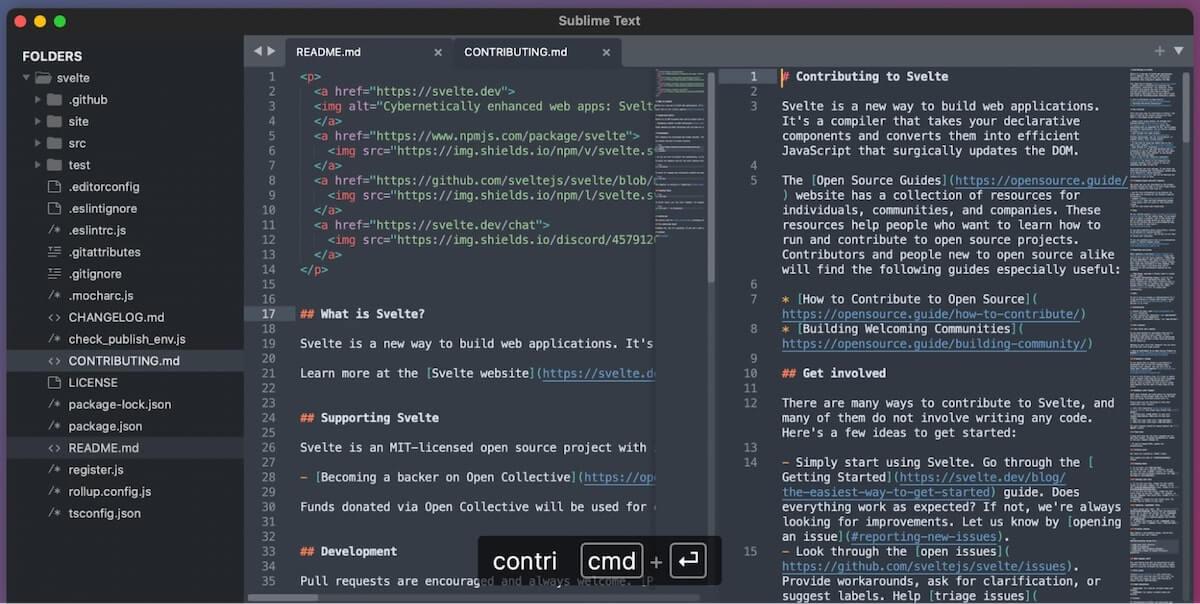
Sublime Text is a simple and fast text editor that cleans up code in a jiffy. The tool features smart completion to provide suggestions based on existing code. The customizable interface is ideal for simple code editing and uses features like GPU rendering and syntax highlighting to configure better code. ???

PyCharm is an Integrated Development Environment that provides advanced features to give you more control over your code. Features like PEP8 checkers, inspections, and refactoring ensure your code is clean and error-free. The tool offers support for a wide range of frameworks and remote web development capabilities.
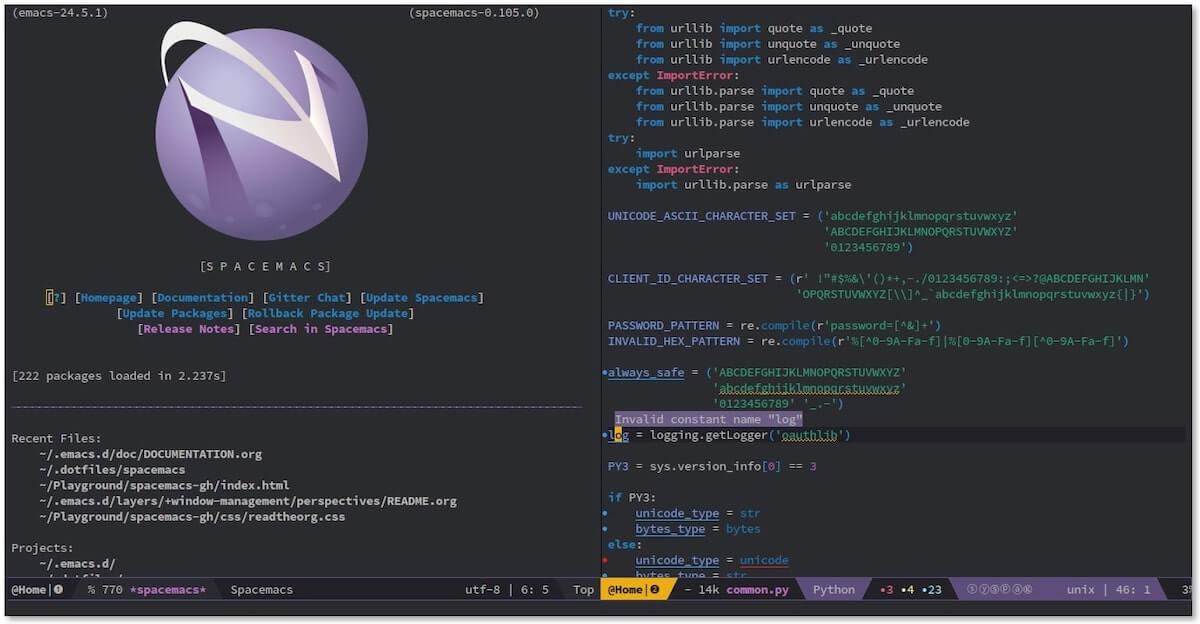
Spacemacs is a code editor that includes GNU Emacs features and blends them with capabilities that users of Vim love—more on that tool in a minute. The extensive functionality means this tool works as a simple text editor and a more advanced IDE or code editor.

IntelliJ IDEA is a Java and Kotlin IDE that offers a collaborative and remote work environment to code with the entire team in a streamlined workspace. Not just a text editor, this tool is designed to simplify the coding process from design and implementation to testing and deployment. ✍️
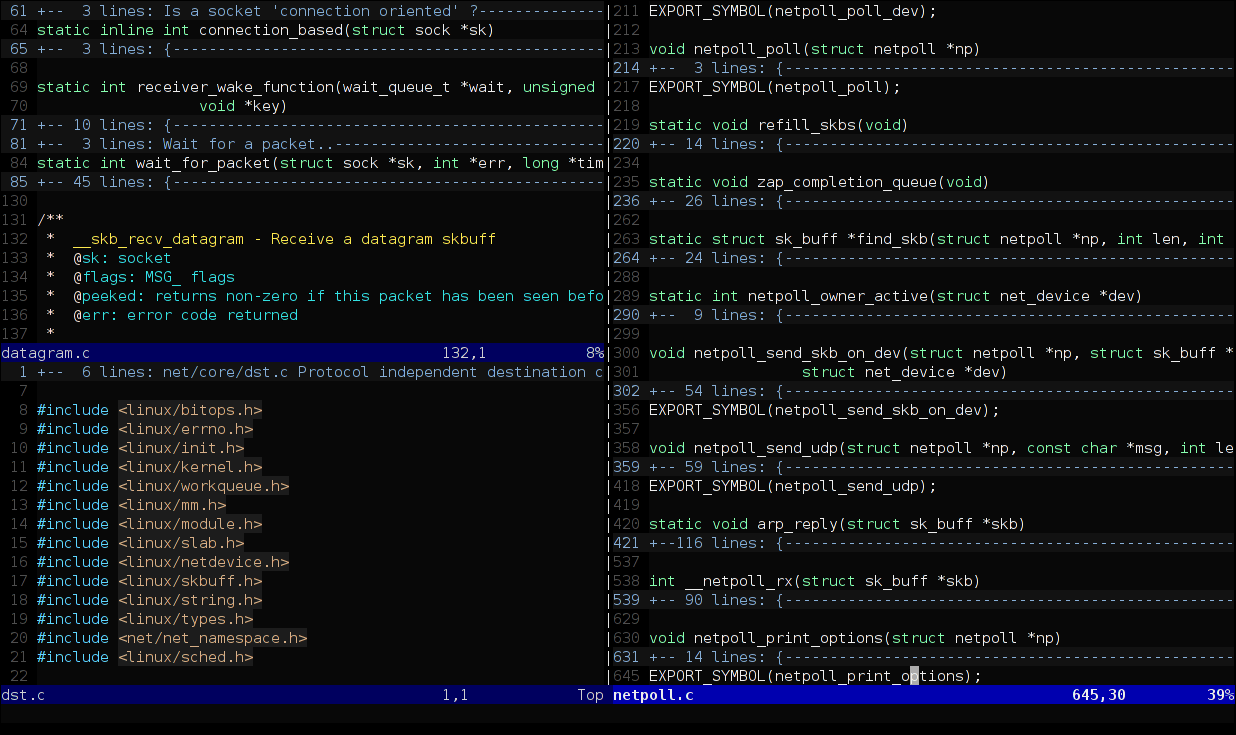
Vim is a text editor created for web designers who don’t need hand-holding. The tool is compatible with most UNIX systems and focuses mainly on in-terminal editing. It’s a free code editor that asks for donations to charity instead of monthly payments.
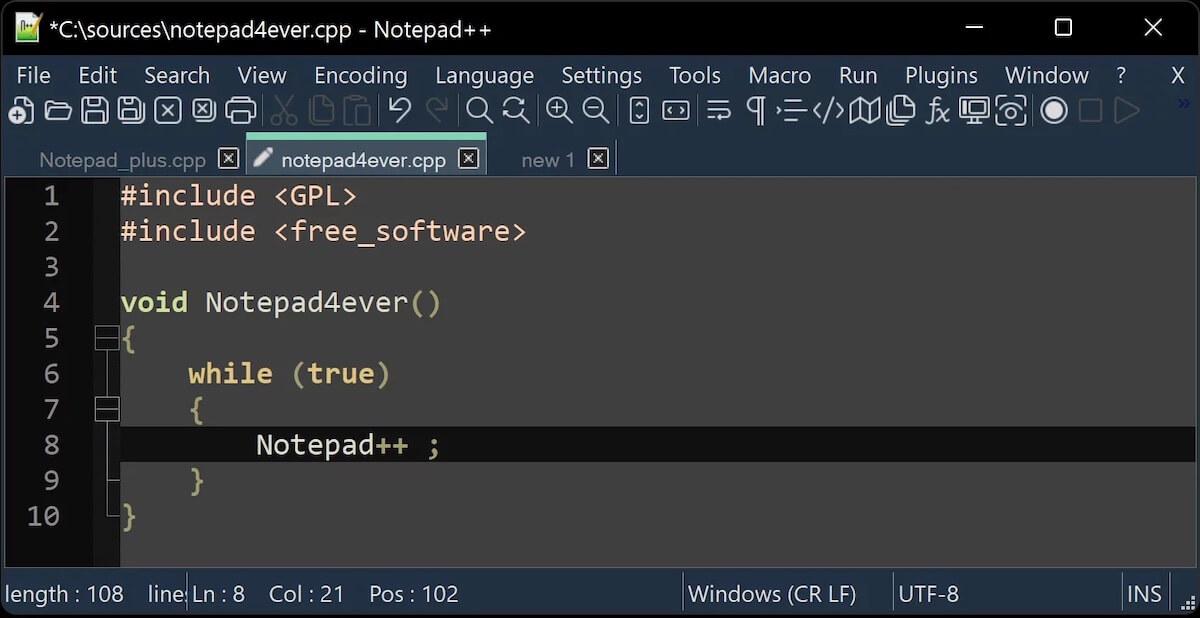
This free source code editor features multi-language support and lower CPU power, reducing resource load and making your coding more efficient. The feature-rich tool lets you manage multiple documents in one space and includes classic tools like syntax highlighting and auto-complete. ?
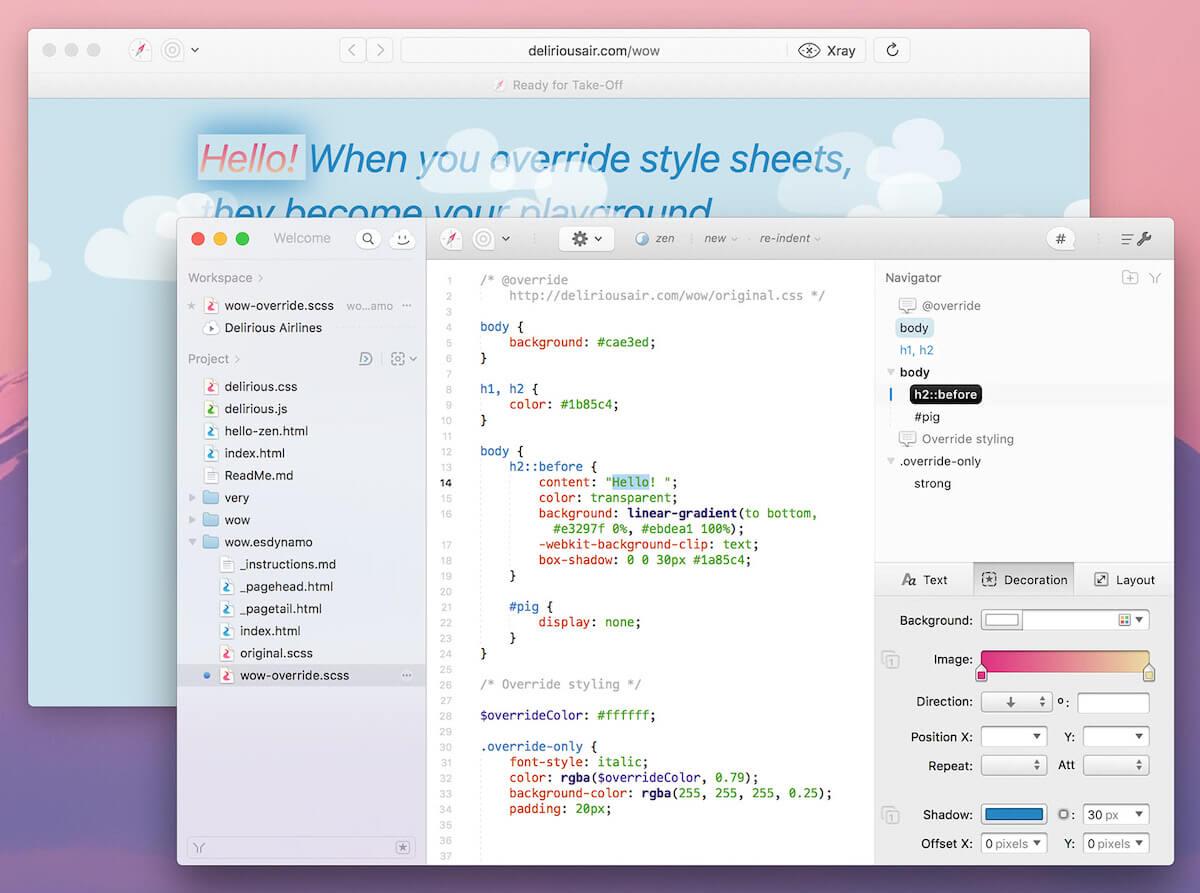
Espresso is a web editor for Mac products. Designed to help programmers build websites, it features live previews to see exactly how your code translates into user views. Templates and plugins make coding faster than ever and improve collaboration.
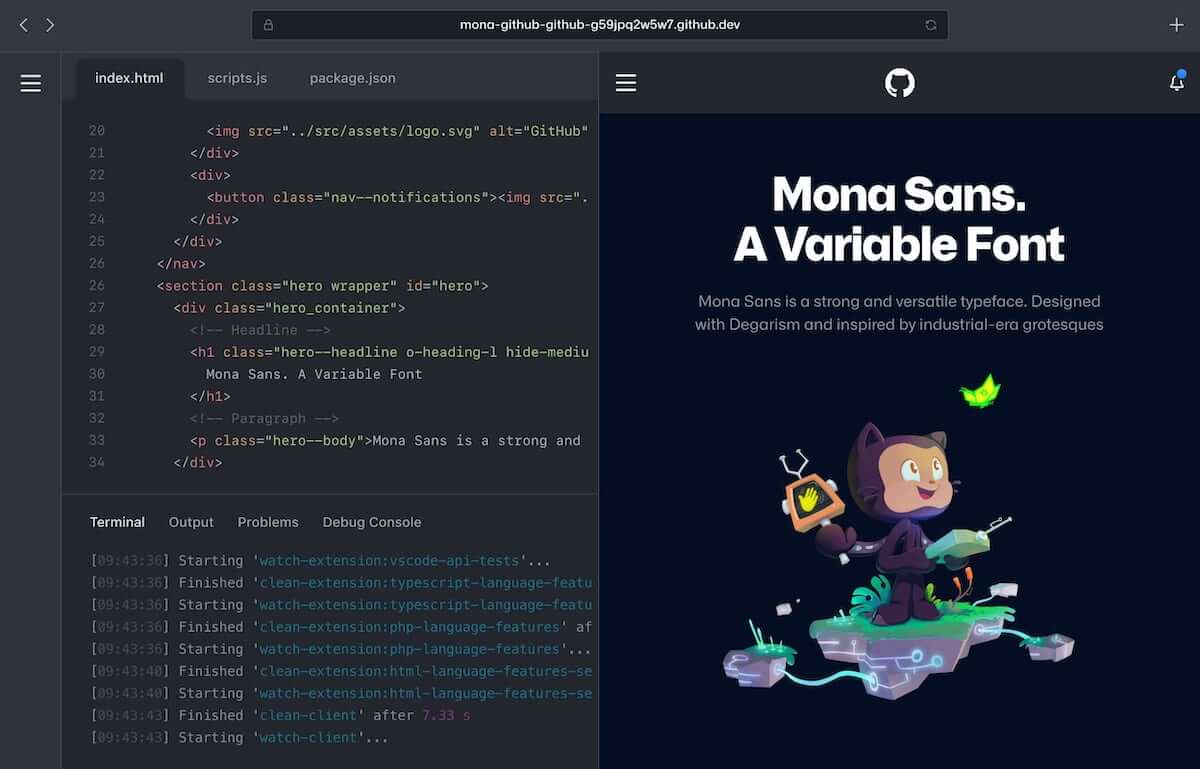
Codespaces is a GitHub product designed to make it easier to manage development environments. The editor integrates seamlessly with Visual Studio Code, Jupyter, and JetBrains for an all-in-one coding tool. Low-latency connections allow for faster editing, even if you’re working on huge projects. ?
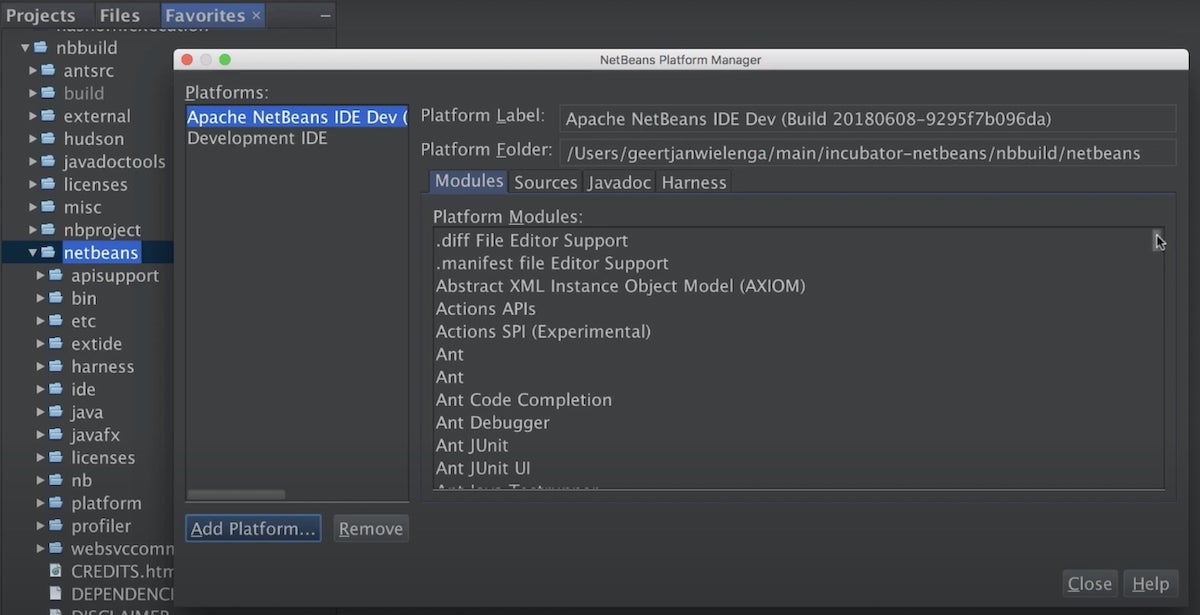
Apache NetBeans is a code editor that features syntax highlighting, code refracting, and brace matching for faster creation. Smart code completion and keyboard shortcuts cut down on the time it takes to create code. Suggesting parameters use best practices to highlight areas for improvement and refine code based on existing elements.
While these code editors are great for crafting and cleaning up your coding efforts, they don’t do anything for task management or larger project support when managing a team. That’s where other tools like ClickUp come in. Here, we’ll show you how ClickUp helps when it comes to development project tasks, managing agile software teams, and streamlining workflows. ?
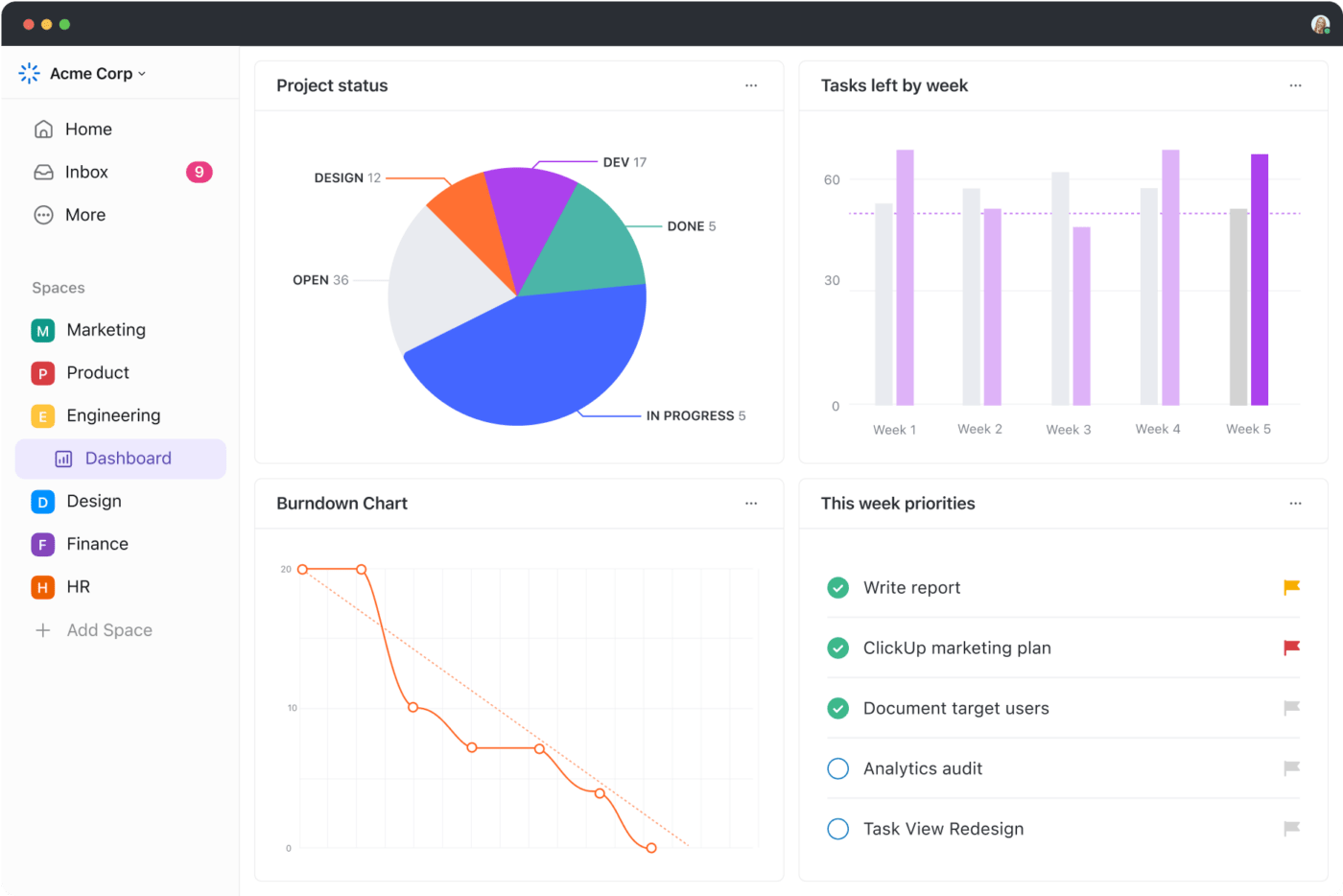
ClickUp is a project management software tool that developers use to manage projects big and small. It’s not a code editor. Think of it more as a workflow tool that lets you manage the dev team and track progress toward your goals.
ClickUp is a task management dream thanks to triggers and Automations that instantly assign work to the right team members. Say you have a client that fills out a contract for a new website design. Once that’s completed, it triggers tasks for the development team to start coding landing pages and the back-end of the site.
ClickUp’s agile teams features let you create agile dashboards, run sprint reporting, and build workflows for Scrum, Kanban, and more. Create test specifications, brainstorm ideas, and write code with ClickUp AI. It supports dozens of use cases including creating testing plans and suggesting code changes.
ClickUp’s integrations connect to more than 1,000 tools. That way, your development team works seamlessly with tools like GitHub and Figma. ClickUp Forms provide a space for feature requests, bug reporting, and code reviews. Agile templates from ClickUp let you build project plans, sprint designs, and project roadmaps with ease. ?
With all the code editors on this list, you’re sure to find a tool that helps clean up and elevate your work. From advanced IDEs to simple text editors, there’s something for every style and use case.
When you’re ready to take your entire coding workflow to the next level, sign up for ClickUp. Dive in and start assigning coding tasks to relevant team members and build code reviews into your workflows. Use the built-in AI tools, Forms, Whiteboards, and templates to make your team more effective and efficient—all in one space. ?
© 2025 ClickUp